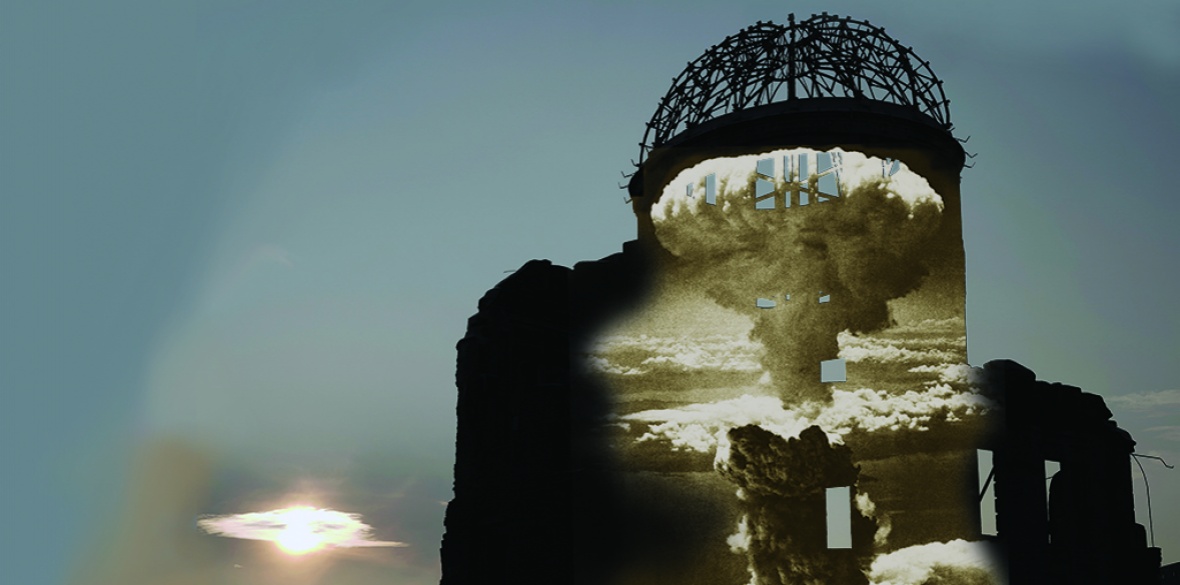This is the last article you can read this month
You can read more article this month
You can read more articles this month
Sorry your limit is up for this month
Reset on:
Please help support the Morning Star by subscribing here
CALLS for the British government to abolish its obscene arsenal of nuclear weapons will intensify today as the world marks Hiroshima Day — 75 years since US forces dropped an atomic bomb on the Japanese city, killing 140,000 people.
The calls come amid progress on the criminalisation of nuclear weapons by the United Nations, where three more countries have voted to ratify the 2017 Treaty on the Prohibition of Nuclear Weapons.
The treaty needs 50 countries to ratify it, at which point it would become international law — though the pact is binding only on those countries which are party to it.
By last month, 40 countries had signed, with Sudan, Fiji and Botswana being the most recent signatories.
Britain, the United States and other nuclear powers have refused to sign and did not attend the 2017 session of the UN general assembly which voted for the treaty.
The abolition calls also come against the background of intensifying belligerence and military threats from United States President Donald Trump.
Campaigners against nuclear weapons said the destruction of Hiroshima and Nagasaki, which was bombed three days later, remain relevant today in a world where nuclear bomb stockpiles cast the shadow of potential global obliteration.
Campaign for Nuclear Disarmament secretary Kate Hudson said: “We are facing an increasingly dangerous military situation driven most alarmingly by Trump’s policies.
“His withdrawal from key treaties, the possibility of the resumption of nuclear testing, all increase the risk of nuclear war.
“Of course, we understand the context for this: the US is a declining power economically and seeks to assert itself militarily.
“This has been the case for some time — noticeable under the Bush administration, which sought to compel non-compliant states to bend to the US will.
“Trump’s drive to war is far more dangerous. The US National Security Strategy focuses on what it describes as strategic rivals or competitors, notably China and Russia. Its goal is to be able to defeat them militarily, to prepare for war on a massive scale.”
She said that “so-called usable nuclear weapons” have been deployed.
“Taking these two strategies together, it is clear that there is a significant danger of a US war on China and that opposing this is a fundamental task for the movement today,” she said.
“This is a conflict where nuclear weapons will be used and we need to work with all our strength to prevent such a war.”
She said the world today is “closer to tragedy” than it has ever been.
“On this anniversary, we must recommit to working together, in unity, to ensure that those hands never reach midnight.”
Former Labour Party leader Jeremy Corbyn said of the Hiroshima and Nagasaki bombings: “We must never forget these atrocities, and we must never give up on the mission to rid our world of nuclear weapons.”
Stop the War Campaign convenor Lindsey German said: “For my generation, Hiroshima meant that there could never be another major war without the destruction of all humanity.
“We still see this terrible barbarism everywhere today. The major states are nuclear armed and there is the ever-present threat of conflict, now growing between the US and China in particular.
“Today, August 6, we should redouble our efforts to oppose war and all nuclear weapons.”
CND Cymru chairwoman Jill Evans said: “People in Wales and internationally are marking this anniversary by joining the many events online.
“We cannot hold our planned event at the National Eisteddfod, but we can still raise our voices to call on governments to act. I urge everyone to take some time this week to listen to the powerful testimony of nuclear survivors.”












